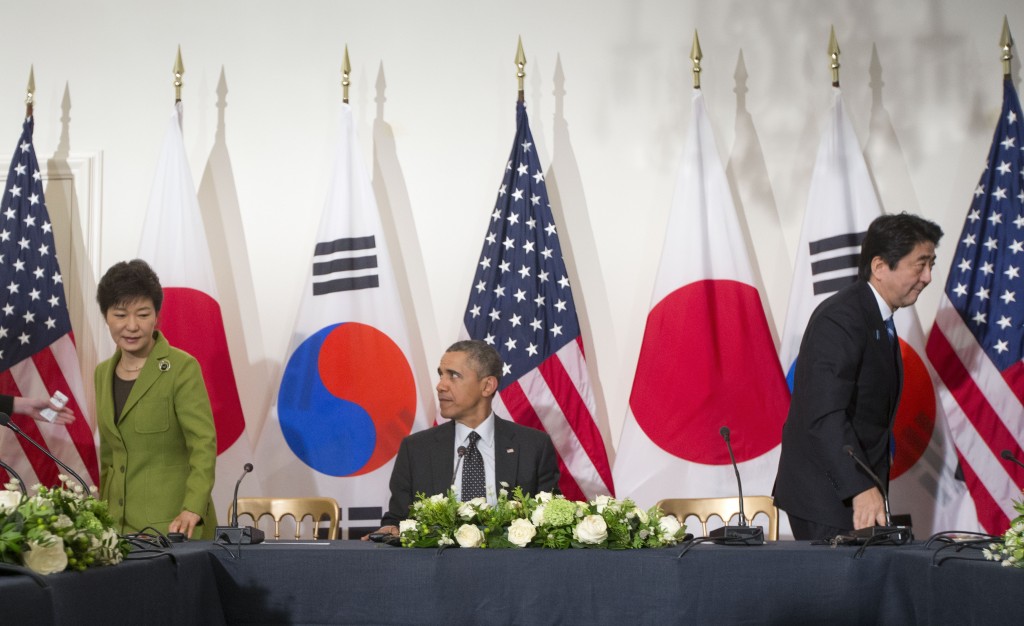- California Assembly OKs highest minimum wage in nation
- S. Korea unveils first graphic cigarette warnings
- US joins with South Korea, Japan in bid to deter North Korea
- LPGA golfer Chun In-gee finally back in action
- S. Korea won’t be top seed in final World Cup qualification round
- US men’s soccer misses 2nd straight Olympics
- US back on track in qualifying with 4-0 win over Guatemala
- High-intensity workout injuries spawn cottage industry
- CDC expands range of Zika mosquitoes into parts of Northeast
- Who knew? ‘The Walking Dead’ is helping families connect
[The New York Times] Japan’s Historical Blinders

President Barack Obama watches as South Korean President Park Geun-hye, left, and Japanese Prime Minister Shinzo Abe, leave their seats at the opposite ends of the table, March 25, 2014, during the start of their trilateral meeting at the US Ambassador’s Residence in the Hague, Netherlands. (AP Photo/Pablo Martinez Monsivais)
[The New York Times] At a time when constructive relations between Japan and South Korea are more important than ever to Asian security, the two countries, allies of the United States, have been unable to put a difficult history behind them. Unfortunately, that seems unlikely to change soon given the release on Friday of a Japanese report on World War II sex slaves.
As a democracy and the world’s third-largest economy, Japan cannot be seen as trying to rewrite its past. [Read More]












![일본 사도광산 [서경덕 교수 제공. 재판매 및 DB 금지]](http://www.koreatimesus.com/wp-content/uploads/2024/07/PYH2024072610800050400_P4-copy-120x134.jpg)


